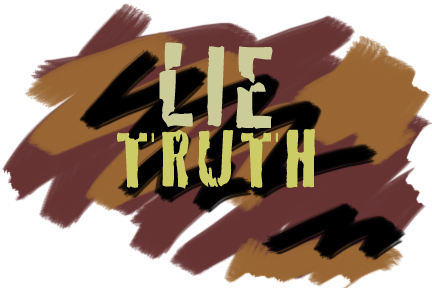
I like magic tricks. I was recently at a live performance
with a magician who pulled a fast one over on the audience. He let us know that
at some point in his performance, a person in a gorilla costume would walk onto
the stage. He then proceeded to do the rest of his routine, which included
having members of the audience draw simple pictures and put them in a sealed
envelope as he drew their image on a large easel. At one point, he picked up
the easel and moved it to the center of the stage. He told us not to let it out
of our sight. Just then, the gorilla came onto the stage. When the gorilla took
off his mask, you guessed it, it was the magician! In plain view of us all, at
some point in the performance, he switched places with the person who carried
the easel to center stage. Before he came out in the gorilla suit, we would
have all sworn that he was the person behind the easel, but alas, when the
identity of the gorilla was revealed, we found out we had been fooled.
Perception is reality. Is that a true statement? Can you and
I be fooled into believing something is true, when, in reality, it is false? In
a day when people jump to conclusions from sound bites and the latest trending
tweet, it seems so. It appears that you can say just about anything you want
about a company, a group or a person and people will believe it. That has a lot
of business people, particularly those who guard the reputation of the company
brand, on edge these days. The beauty of the new media is you can find lots of
people to follow your company, like your brand and post their satisfaction with
ease. The bane of the new media is the immense damage a few hateful people can
do to your reputation in short order. Particularly at risk these days are
businesses who want to make a statement about the personal ethics and faith of
their ownership. For those who stand up for what they believe, they run the
risk of a backlash of hatred that claims they are intolerant, bigoted and much
worse. I wonder whatever happened to the First Amendment – all of it, not just
the part about free speech.
What can you do about it? Many businesses have given into
the demands of a vocal minority who insist on pushing their way of thinking
upon all of us. Some businesses have tried to take a pass and say nothing. That
is quickly becoming out of vogue. The shouts of the vocal minority are
demanding that everyone of influence make a statement of agreement or be trashed
in the public eye. They have their thumb on their next tweet ready to go. "No
comment” is no longer an acceptable answer to their demands you say the right
thing. There is something very sinister in forcing everyone to talk like you
do, act like you do and to think like you do. History is replete with those who
have forced their viewpoint upon the masses – telling them when to march and
who to hate. It has never worked for long. But it has worked in the short term
and I think we are on the edge of something very destructive.
From my perspective, this calls for patience and lots of
wisdom. From a marketing viewpoint, make sure you are keeping your finger on
the pulse of your customers. Understand what they value, what their trending
attitudes are and what choices they are making. Your marketing needs to mirror
this. Stay in front of them with your communications. This is not the day to
lose touch with your target market. Be patient in the midst of pain. Understand
that the attention span of most people today is very short. They will be on to
the next trending news story shortly. However, if you are attacked,
particularly in social media, you should respond with the simple truth. Trying
to dodge an issue of hate aimed at your company will make it worse. Don’t
return hate for hate – that sort of thing blows up on social media - but be honest about your stand. Then be
prepared to ride it out. One source of recourse for some social media sites is
a reporting mechanism when someone is spamming you. (Make sure you are clear on
what is and what is not considered spam by the site.) The main thing is you
need to get the truth out, even before there is a crisis. Transparency with
your customers is very important in these days. In the end, the magician took
off the gorilla mask and revealed his true identity. Can you do that with your
customers? It boils down to trusting the truth.